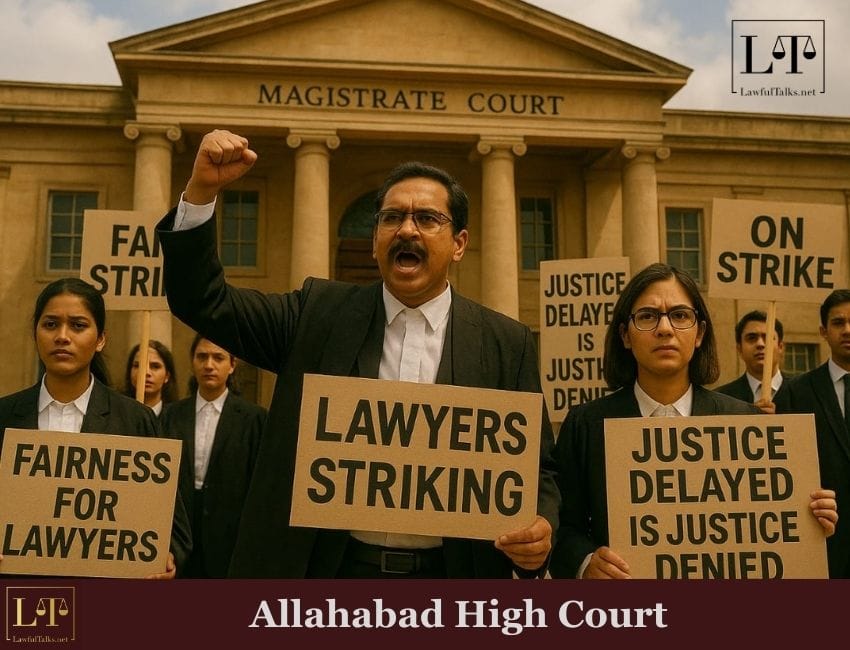Allahabad HC Sets Aside Afzal Ansari's Conviction, Allows Him to Continue as MP

The Allahabad High Court strongly criticized the functioning of the revenue court at Tehsil Rudauli, Ayodhya, after discovering that a pending case had been adjourned 68 times out of 102 hearings due to repeated strikes and condolence calls by the local Bar Association.

Facts:
The matter arose from an Article 227 writ filed by Mohd. Najim Khan, seeking directions for timely adjudication of an appeal pending before the SDM under Section 67 of the UP Revenue Code.
Khan’s supporting documents painted a grim picture, of 102 hearings that had been scheduled in the case, two-thirds of which were lost to strikes and boycotts called by the local Bar Association. Particularly striking was the fact that in the last 21 consecutive hearings since May 27, 2025, the matter was adjourned each time on account of a boycott.
Taking note of the hardship caused to litigants, especially those of limited means, Justice Mathur remarked that revenue proceedings were coming to a standstill owing to such repeated disruptions.
The Court emphasized that this state of affairs was unacceptable and ran contrary to binding precedents of the Supreme Court, which has consistently held that lawyers have no right to strike.
In this regard, the bench cited landmark rulings including those of Ex-Capt. Harish Uppal v. Union of India (2002), Hussain v. Union of India (2017), and District Bar Association, Dehradun v. Ishwar Shandilya (2020).
The 2020 judgment was quoted to reiterate the binding position of law:
“Lawyers have no right to go on strike or give a call for boycott, not even on a token strike… No Bar Council or Bar Association can permit calling of a meeting for purposes of considering a call for strike or boycott.”
Calling the situation “a sorry state of affairs” directly attributable to the conduct of the lawyers, the High Court ordered the impleadment of the President and General Secretary of the Rudauli Bar Association as respondents in the matter.
Notices were issued to both, directing them to personally appear before the Court on September 2, 2025, with affidavits explaining why repeated boycott calls were being made and why action should not be taken against them.
The Court further observed that the professional misconduct of the office bearers could also amount to contempt of court, signalling its readiness to initiate stringent action if the explanation offered was unsatisfactory.

Manasvi Sharma
Legal Intern, 2nd Year, NLIU Bhopal
Latest Posts
Categories
- International News 19 Posts
- Supreme Court 347 Posts
- High Courts 362 Posts



















































































































































































































































































































































































































































































































































































































































































































































